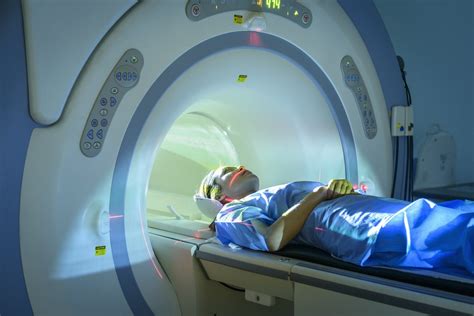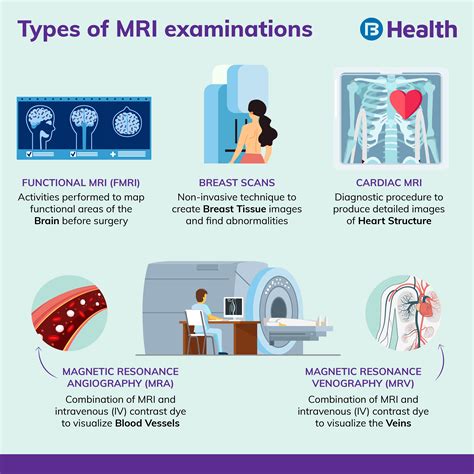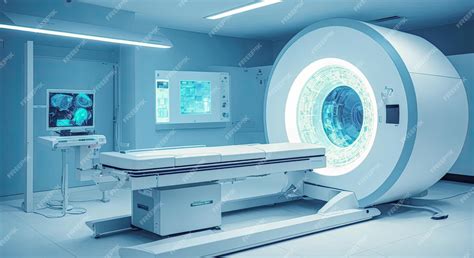Intro
Discover what MRI test is, a non-invasive diagnostic imaging procedure using magnetic resonance imaging, MRI scan, and radiology to diagnose medical conditions, injuries, and diseases, providing detailed internal body images.
Magnetic Resonance Imaging (MRI) tests have become a crucial diagnostic tool in the medical field, allowing healthcare professionals to obtain detailed images of the internal structures of the body. The importance of MRI tests lies in their ability to provide high-resolution images of organs, tissues, and other internal body structures, helping doctors to diagnose and treat a wide range of medical conditions. With the advancement of technology, MRI tests have become more accurate, faster, and safer, making them an essential part of modern medicine. Whether it's to diagnose a brain injury, detect cancer, or monitor the progression of a disease, MRI tests have proven to be a valuable resource for healthcare providers.
The significance of MRI tests can be seen in their ability to non-invasively examine the body's internal structures, reducing the need for surgical procedures and minimizing the risk of complications. This is particularly beneficial for patients who may be at risk for complications from invasive procedures or who have undergone previous surgeries. Moreover, MRI tests can be used to monitor the effectiveness of treatments, allowing healthcare providers to adjust their approach as needed. As medical technology continues to evolve, the role of MRI tests in diagnostic medicine is likely to expand, enabling healthcare professionals to provide more accurate diagnoses and effective treatments.
The use of MRI tests has become increasingly prevalent in recent years, with applications in various medical specialties, including neurology, cardiology, and oncology. The high-resolution images provided by MRI tests enable healthcare professionals to diagnose conditions such as strokes, tumors, and vascular diseases, among others. Furthermore, MRI tests can be used to guide minimally invasive procedures, such as biopsies and tumor treatments, reducing the risk of complications and improving patient outcomes. As the medical field continues to advance, the importance of MRI tests will only continue to grow, making them an indispensable tool for healthcare providers.
How Mri Test Works

Types of Mri Tests
There are several types of MRI tests, each designed to examine specific parts of the body or to diagnose particular conditions. Some common types of MRI tests include functional MRI (fMRI), magnetic resonance angiography (MRA), and magnetic resonance spectroscopy (MRS). fMRI is used to study brain function and activity, while MRA is used to examine blood vessels and diagnose vascular conditions. MRS, on the other hand, is used to analyze the chemical composition of tissues and diagnose conditions such as cancer. Each type of MRI test has its unique applications and benefits, making them valuable tools in diagnostic medicine.Benefits of Mri Test

Preparation for Mri Test
To prepare for an MRI test, patients are typically required to: * Remove any metal objects, such as jewelry or glasses * Change into a hospital gown * Avoid eating or drinking for a few hours before the test * Inform their healthcare provider about any medical conditions or allergies * Remove any makeup or hair products that may contain metalRisks and Side Effects of Mri Test

Cost of Mri Test
The cost of an MRI test can vary depending on the location, type of test, and healthcare provider. On average, the cost of an MRI test can range from $500 to $3,000 or more, depending on the complexity of the test and the need for contrast dye. However, most insurance plans cover the cost of MRI tests, making them a more affordable option for patients.Future of Mri Test

Common Uses of Mri Test
MRI tests have a wide range of applications in diagnostic medicine, including: * Brain and spinal cord injuries * Cancer diagnosis and treatment * Vascular diseases * Joint and musculoskeletal disorders * Organ transplantationWhat is an MRI test?
+An MRI test is a non-invasive diagnostic test that uses a strong magnetic field and radio waves to generate images of the internal structures of the body.
How long does an MRI test take?
+The length of an MRI test can vary depending on the type of test and the complexity of the procedure, but it typically takes between 15 to 90 minutes.
Is an MRI test painful?
+No, an MRI test is not painful, but some patients may experience anxiety or claustrophobia during the test.
Can I have an MRI test if I have a pacemaker?
+It depends on the type of pacemaker you have, but in general, patients with pacemakers should not undergo an MRI test without consulting their healthcare provider first.
How do I prepare for an MRI test?
+To prepare for an MRI test, you should remove any metal objects, change into a hospital gown, avoid eating or drinking for a few hours before the test, and inform your healthcare provider about any medical conditions or allergies.
In conclusion, MRI tests have become an essential tool in diagnostic medicine, providing healthcare professionals with detailed images of the internal structures of the body. With their non-invasive nature, high-resolution images, and wide range of applications, MRI tests have revolutionized the way healthcare providers diagnose and treat medical conditions. As technology continues to advance, the future of MRI tests looks promising, with potential developments in higher field strengths, faster scanning times, and improved contrast agents. Whether you're a healthcare professional or a patient, understanding the benefits and applications of MRI tests can help you make informed decisions about your health. We invite you to share your thoughts and experiences with MRI tests in the comments below, and to share this article with others who may benefit from this valuable information.
